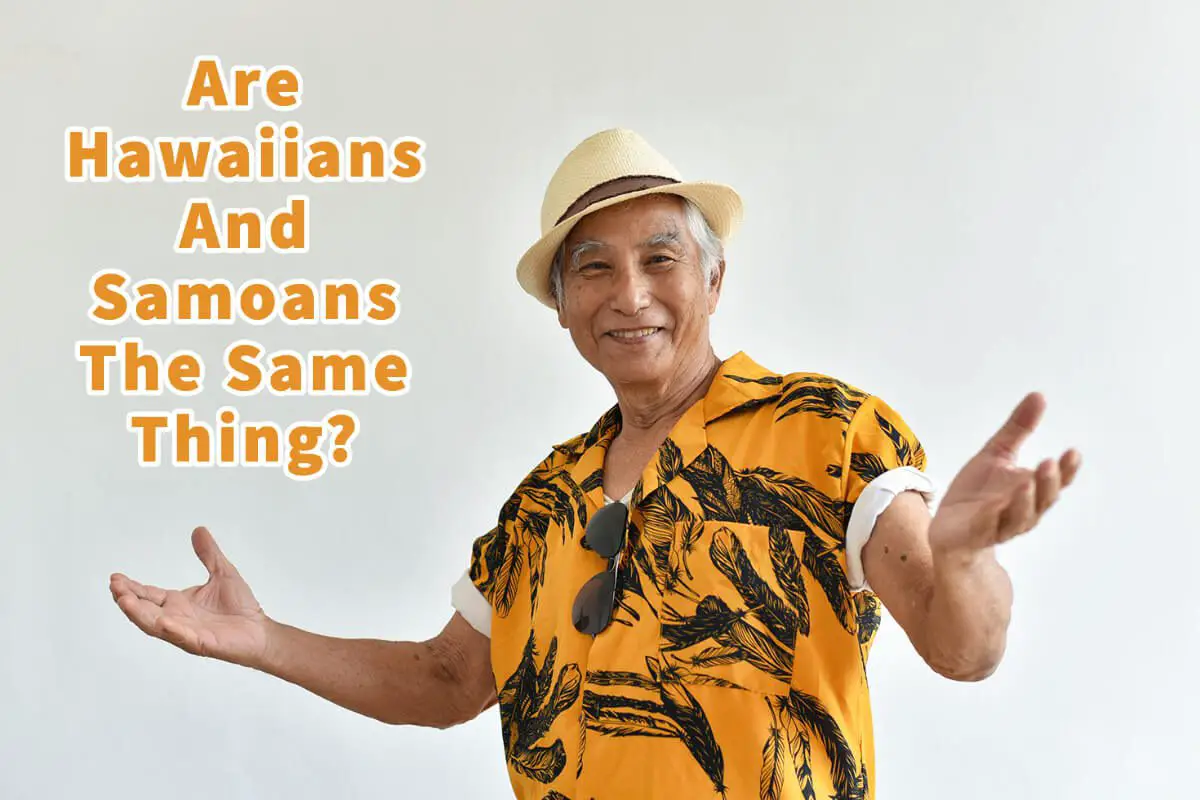You may meet many native Hawaiians and Samoans when you go to Hawaii. It can sometimes be confusing to understand whether or not Hawaiians and Samoans are of the same nationality and culture.
Hawaiians and Samoans are not of the same nationality and culture; they are very different. Native Hawaiians are considered to be Americans. Most native Hawaiians do not speak the Hawaiian language. On the other hand, Samoans are from the archipelago of Samoa. Most Samoans speak Samoan and English. Culturally the two places are very different.
Table of Contents
- Hawaiians And Samoans Are Two Different Countries
- Culturally, The Samoans And Hawaiian Are Different
- Virtually Travel Hawaii – The Conquer Virtual Challenge – Road To Hana
- 12 Reasons Everyone Should Visit the Hawaiian Islands (And Why I Adore Them)
- Frequently Asked Questions
- Related Questions
Hawaiians And Samoans Are Two Different Countries
Both Hawaiians and Samoans are Polynesian, but they are very different. Hawaii and Samoa are, first of all, separate countries far apart.
Flying between Hawaii and Samoa would take you over 5 hours as they are over 2,500 miles or over 4,000 kilometers. They are both in Polynesia but are not very close neighbors.
Here are some of the main differences between Hawaiians and Samoans.
Hawaiians Are Americans
As Hawaii is considered part of the United States, Hawaiians are considered American Polynesians. Hawaiians have the language of Hawaiian, but most native Hawaiians grew up speaking English.

Hawaiians, also known as Native Hawaiians, are officially known as the indigenous Polynesian people of the islands of Hawaii. In the 2020 census of the United States, about 690,000 people identified themselves as Native Hawaiian.
Many Native Hawaiians no longer call Hawaii their home but live on the US Mainland of California, Nevada, and Utah.
Today, very few Native Hawaiians speak the Hawaiian language fluently; most Native Hawaiians speak English as their native language.
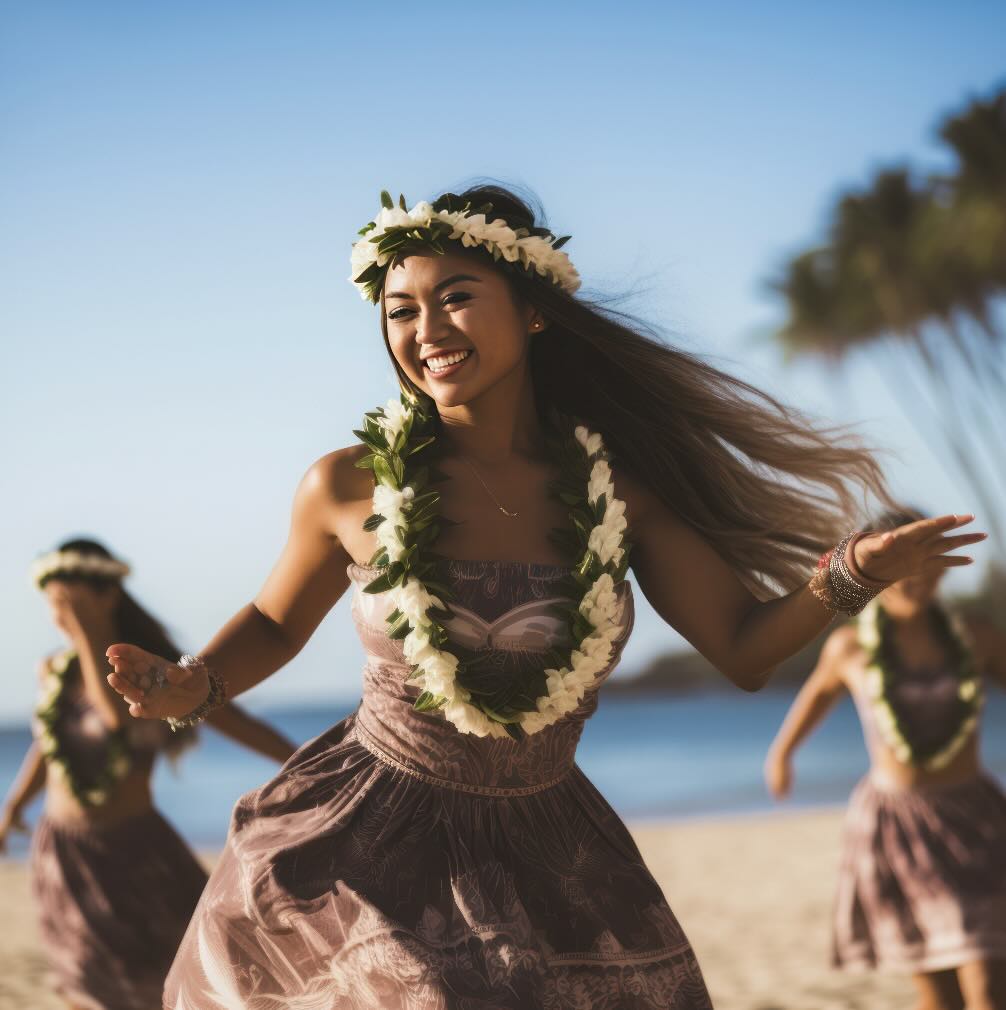
American Samoa And The Independent State Of Samoa Are Different Countries
The Samoans live in the Samoan archipelago of islands. The Samoan island area covers 1170 mi.² in the central South Pacific; it covers most of the independent states of Samoa and American Samoa.
American Samoa is an unincorporated territory of the United States located in the south Pacific Ocean. It is not a state of the United States but a territory. American Samoa is the number one recruiting station for the US military.
American Samoa is the only significant territory of the United States where US citizenship is not granted at birth, and people born in American Samoa are considered ”Non-citizen nationals.”
The population of American Samoa is just over 46,000. The official language is English and Samoan.
The Independent State of Samoa is on the other part of the Samoan archipelago islands; until 1997, it was known as Western Samoa. The Independent State of Samoa is a unitary democracy.
The population of the islands of Samoa is more populated than American Samoa, with over 200,000 residents; the official language is Samoan and English.
American Samoa and the Independent State of Samoa are more similar to each other than to Hawaii. First, the Samoans share the same language, culture, and archipelago of islands.
Most Samoans I know can speak Samoan. They grew up speaking both Samoan and English. Whereas most native Hawaiians I know cannot speak the Hawaiian language but only speak English.
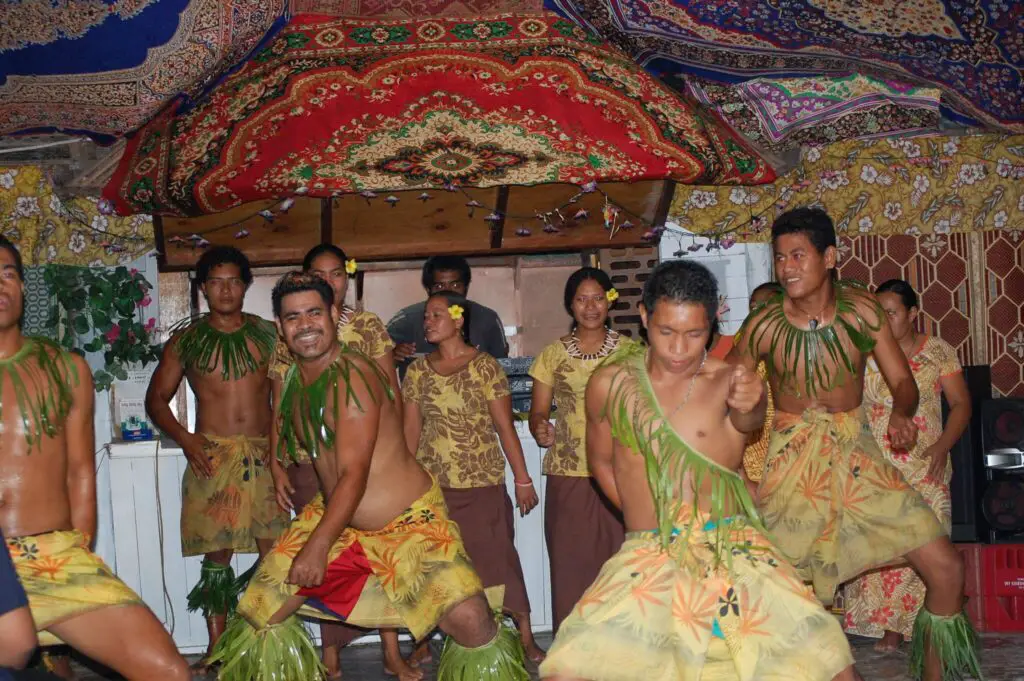
Culturally, The Samoans And Hawaiian Are Different
Culturally, the Hawaiians and Samoans are not precisely the same. If you have ever visited the Polynesian Cultural Center in Laie, Hawaii, you can see a Samoan and Hawaiian Village.
At the Polynesian Cultural Center, there are a few things you can learn about how different Samoans and Hawaiians are:
- Traditional Hawaiian and Samoan houses are not the same.
- The dances of Hawaii and Samoa are very different. The Hawaiians have a hula, but the Samoas do a dance that is slap kind of dance.
- Samoans have a dance that is rooted in their culture, known as the fire knife dance. Watching this fascinating dance as they throw the fire and knives around is fantastic.
- The music between the two countries is very different. Hawaiian music was always softer, and Samoan music had more drums and a beat.
- The Samoans have a traditional dress known as puletasi, similar to what women wear in Tonga and Fuji. The traditional Hawaiian dress is a muumuu and crosses between a robe and a shirt.
When you look at both Hawaiians and Samoans, you can see that although they are both Polynesian, they are culturally very different. The Hawaiians and Polynesians come from two other countries and even two different areas of the archipelago of Polynesia.
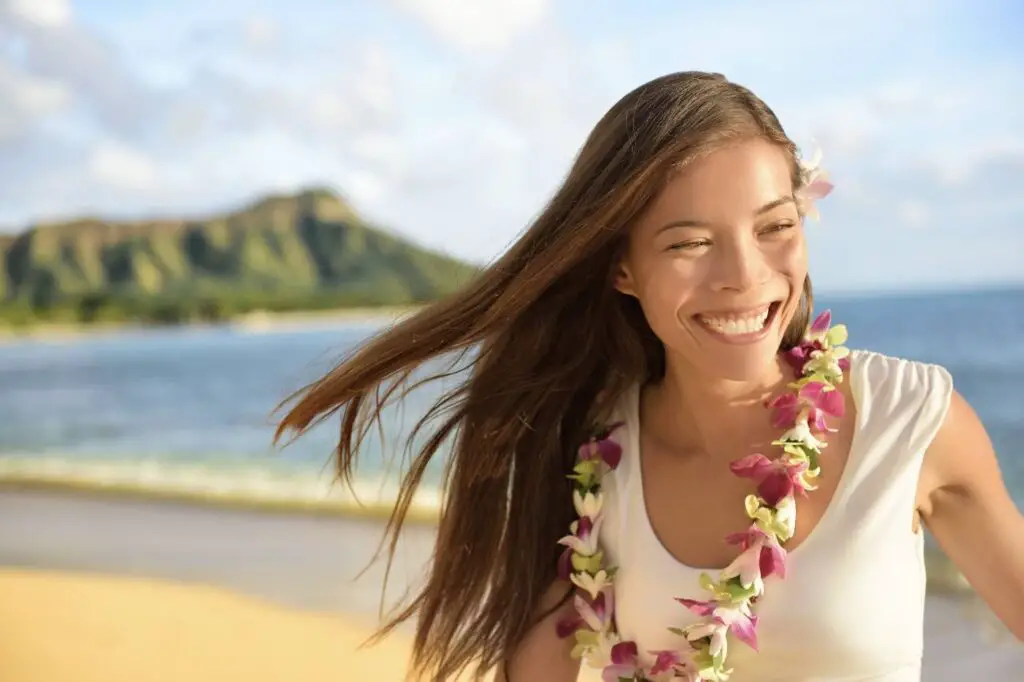
Virtually Travel Hawaii – The Conquer Virtual Challenge – Road To Hana
If you cannot travel to Hawaii but would like to have the spirit of the Hawaiian islands in your life, you can consider doing the Conquer Virtual Challenge Road to Hana. The Road to Hana will take you on a scenic road through Maui, Hawaii.
Each time you travel on this majestic highway and pass an essential landmark, the Conquer Virtual Challenge will send you a postcard; these postcards allow you to discover Hawaii virtually.
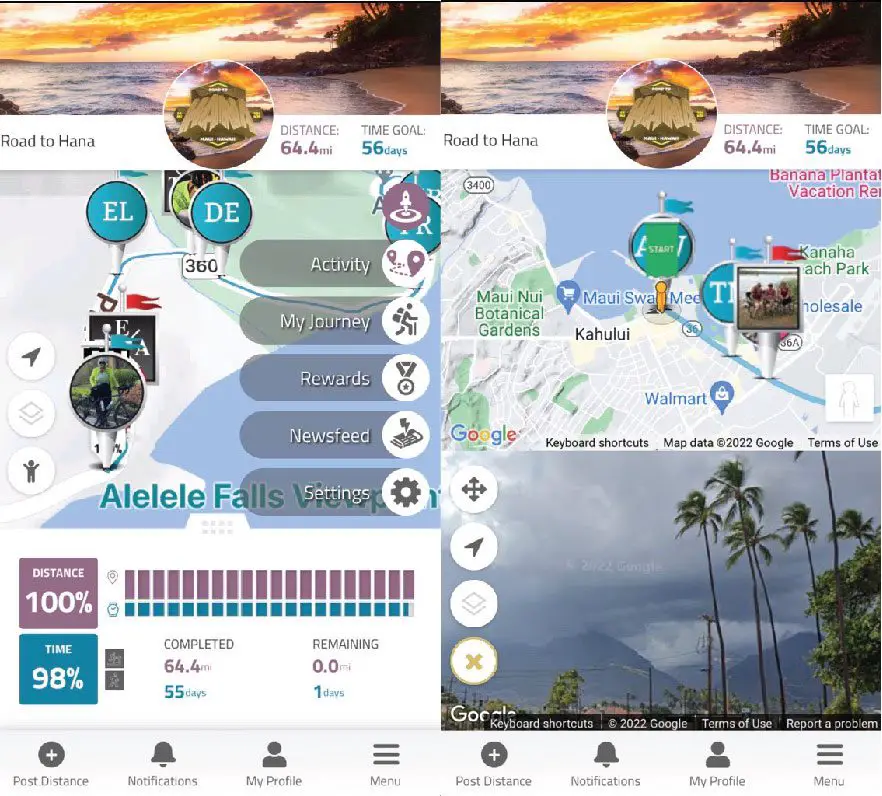
One of our favorite things is to get on The Conqueror Virtual Challenge Google map function and see virtually where we are traveling.
Each time you run, walk, jog, swim, cycle, or do a host of other fitness activities, you can count that mileage towards your virtual challenge. This means that every single mile you do can count.
Find out more about the Conquer Virtual Challenge and get 10% off your first challenge by clicking on the link below.
12 Reasons Everyone Should Visit the Hawaiian Islands (And Why I Adore Them)
Hawaii, often referred to as the “Aloha State”, is more than just a group of islands in the middle of the Pacific Ocean. It’s a slice of paradise on Earth; having been there, I can attest to its magic.
Here are 12 reasons why everyone should make a trip to Hawaii at least once in their lifetime, and why it holds a special place in my heart:
- Unbeatable Beaches: Hawaii’s beaches are undoubtedly among the best in the world. From the powdery white sands of Waikiki to the dramatic black sands of Punalu’u, there’s a stretch of coast for everyone. I have personally lost countless hours, just soaking up the sun and marveling at the vast expanse of blue.
- Rich Cultural Tapestry: Beyond the stunning landscapes, Hawaii boasts a rich cultural heritage. From the traditional hula dances to stories of ancient gods and goddesses, the islands pulsate with a spirit that’s hard to find elsewhere.
- Delectable Cuisine: The food in Hawaii is a beautiful blend of its diverse history. From poke bowls to luau feasts, the flavors here are as vibrant and varied as the islands themselves. Trust me; your taste buds are in for a treat.
- A Haven of Relaxation: If you seek to unwind, Hawaii delivers. Whether it’s listening to the waves crash, getting a traditional Lomi Lomi massage, or simply lounging by the pool, relaxation takes on a new meaning in Hawaii. I’ve found that my stresses simply melt away here.
- Breathtaking Natural Beauty: Apart from the beaches, the islands are dotted with majestic waterfalls, lush rainforests, and striking volcanoes. Every corner offers a new natural wonder to explore.
- Unique Volcanic Landscapes: Hawaii Volcanoes National Park, home to the active Kīlauea volcano, offers a once-in-a-lifetime chance to witness molten lava and understand the birth of these islands.
- Water Sports Galore: For enthusiasts like me, the options are limitless – surfing, snorkeling, diving, paddle boarding, and so much more. The clear waters provide perfect conditions for a range of activities.
- Friendly Locals: The spirit of “Aloha” is palpable. The warmth and hospitality of the local people make every interaction special and add to the overall experience.
- Stunning Marine Life: The rich Pacific waters teem with marine life. The oceanic wonders are endless, from colorful reef fish to the majestic humpback whales.
- Incredible Hiking Trails: For someone who loves the outdoors like I do, Hawaii’s trails, ranging from coastal paths to ridgeline hikes, offer views and terrains that are out of this world.
- Spectacular Sunsets: I can’t count the number of times I’ve been left speechless by the sun setting over the Hawaiian horizon. The sky, painted in orange, pink, and purple hues, is a sight to behold.
- Spiritual Connection: There’s a deep spiritual essence to Hawaii. Be it the ancient temples, the sacred chants, or just the sheer beauty around, many, including myself, find a deeper connection to themselves and the world here.
Hawaii isn’t just a travel destination for me; it’s an emotion, a feeling of love and wonder combined. It’s a place where nature, culture, and relaxation intertwine seamlessly, making it a must-visit for anyone and everyone.
Listen To Our Podcast About
Island Identities: Unraveling the Distinct Cultures of Hawaiians and Samoans
Below or By clicking here.
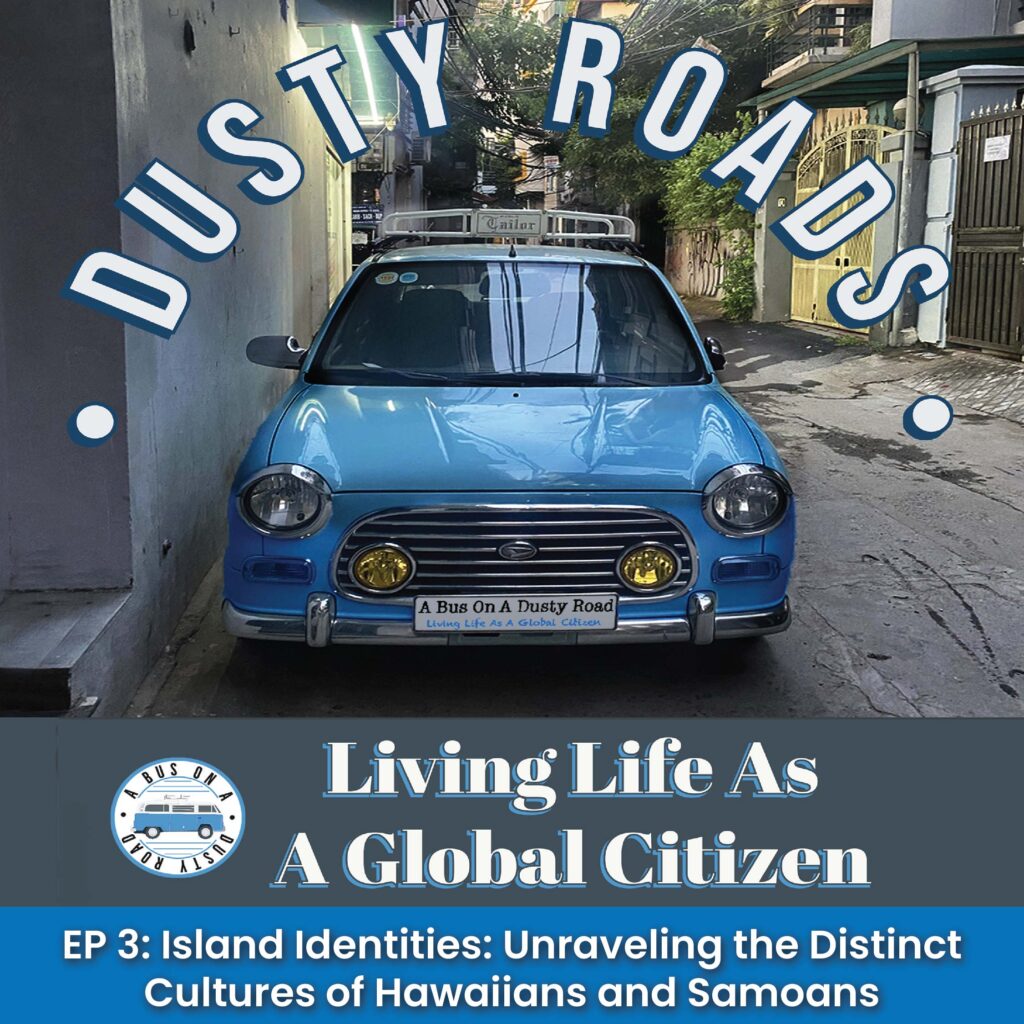
At A Bus On A Dusty Road, we talk about travel, life, and ex-pat living. We are all about “Living Life As A Global Citizen.” We explore social, cultural, and economic issues and travel.
We would love to have you be part of our community. Sign up for our newsletter to keep up-to-date by clicking here. If you have any questions, you can contact me, Anita, by clicking here.
Listen to our Podcast called Dusty Roads. You can find it on all major podcast platforms. Try out listening to one of our podcasts by clicking here.
Subscribe to our A Bus On A Dusty Road YouTube Channel with great videos and information by clicking here.
Frequently Asked Questions
Are Hawaiians and Samoans of the same nationality?
No, Hawaiians and Samoans are not of the same nationality. Hawaiians are considered to be Americans, while Samoans are from the archipelago of Samoa.
Are Hawaiians and Samoans of the same culture?
No, Hawaiians and Samoans have distinct cultures. They have different traditions, customs, and historical backgrounds.
Do most native Hawaiians speak the Hawaiian language?
No, it is not true that most native Hawaiians speak the Hawaiian language. The Hawaiian language has experienced a decline in usage, and today, only a small percentage of native Hawaiians are fluent in Hawaiian.
What language do most Samoans speak?
Most Samoans speak both Samoan and English. Samoan is the dominant language in Samoa, but due to historical ties and education, many Samoans are also proficient in English.
How do Hawaiians identify themselves culturally?
Hawaiians often identify themselves through their unique cultural practices, such as hula dancing, slack-key guitar music, and the concept of aloha spirit, which encompasses love, peace, and compassion.
What cultural practices are significant to Samoans?
Samoans have their own distinct cultural practices, including the fa’a Samoa (the Samoan way), which emphasizes respect for elders, communal living, and the importance of extended family connections.
Are there any similarities between Hawaiian and Samoan cultures?
While there may be some similarities due to their shared Polynesian heritage, Hawaiian and Samoan cultures have evolved independently over time. It is important to recognize and respect the unique aspects of each culture.
Do Hawaiians and Samoans share the same traditional clothing?
No, Hawaiians and Samoans have different traditional clothing styles. Hawaiians have garments like the mu’umu’u and aloha shirts, while Samoans have traditional attire called the sulu and lava lava.
Related Questions
What Continent Is Hawaii A Part Of, And Why?
Politically, Hawaii is considered part of the North American continent as it is one of the United States of America states. But location-wise, many people believe it is part of the Oceania continent as it is located within the area known as Polynesia.
By clicking here, you can discover What Continent Is Hawaii A Part Of And Why?.
What’s The Difference Between Hawaiian And Polynesian?
Native Hawaiian on the Hawaiian island is considered to be part of Polynesia. It is part of what is known as the Polynesian triangle, which includes many islands in Polynesia. But even though Hawaiians are under the ethnic umbrella of Polynesia, there is still some difference between them and their Polynesian counterparts.
By clicking here, you can discover What’s The Difference Between Hawaiian And Polynesian?.
Is Hawaii In One Or Two Time Zones?
Hawaii has a one-time zone. It is in the Hawaii – Aleutian time zone, which means it shares a time zone with part of Alaska. Hawaii has never changed its time for daylight savings time because Hawaii is near the equator, so the sunrise and sunset do not fluctuate greatly throughout the year.
By clicking here, you can discover Is Hawaii In One Or Two Time Zones?

